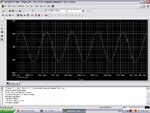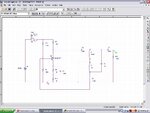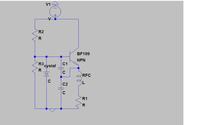goldsmith
Advanced Member level 6

- Joined
- Dec 14, 2010
- Messages
- 3,981
- Helped
- 741
- Reputation
- 1,486
- Reaction score
- 726
- Trophy points
- 1,413
- Location
- Tehran - IRAN
- Activity points
- 24,546
Hi guys
I know that if the B* av become 1 , the circuit can tendency to the oscillation . but when the feed back network is applied to the amplifier , How can i find the new AV and B( feed back gain) ?
for example for a simple Hartley oscillator?
Best Regards
Goldsmith
I know that if the B* av become 1 , the circuit can tendency to the oscillation . but when the feed back network is applied to the amplifier , How can i find the new AV and B( feed back gain) ?
for example for a simple Hartley oscillator?
Best Regards
Goldsmith





